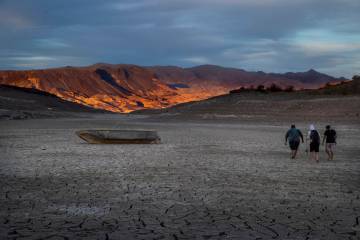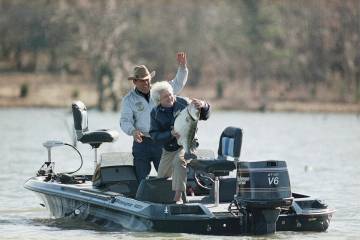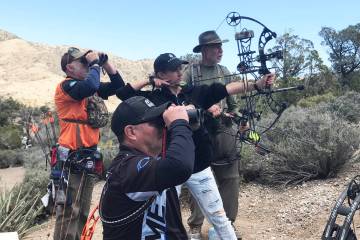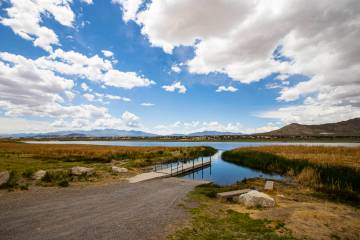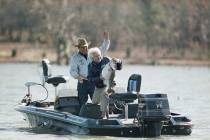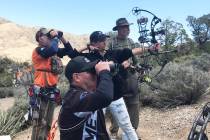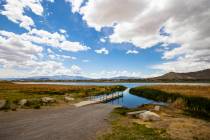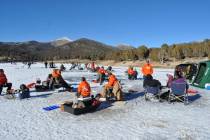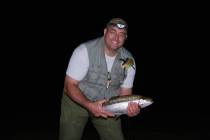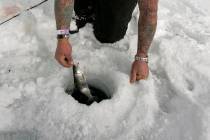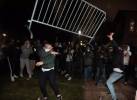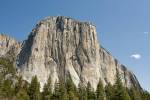Adopt some old-fashioned camping manners
It is no secret that the human population here in the Southwest has grown exponentially during the past 30 years. With that growth has come significant changes to what was once our western lifestyle.
Remember when cowboy boots were considered suitable for a black-tie affair? Or when drivers were courteous and actually slowed down to let you merge into traffic rather than speeding up to make sure you can’t?
In the Las Vegas Valley, what once was a 20-minute road trip can now take 40, and that is on the freeway. A walk through your favorite grocery store or supermarket is like navigating through a game-day crowd at a college football game. We experience those changes every day as we go about our routines, but we also feel the effects of that growth when we visit the outdoors.
While most outdoor destinations still offer a welcome respite from the crush of humanity, outdoor enthusiasts have noticed changes similar to those experienced in the city. Especially impacted are venues located within a three- to four-hour drive of Las Vegas. Campgrounds are filled every weekend, and often during the week as well. Shorelines frequently are lined with anglers, and sometimes you’ll even find traffic on hiking trails.
The bottom line is when we leave town to get away from it all, we are running into a lot of other folks doing the same thing. Formal campgrounds generally place campers within close proximity to one another, but don’t let that discourage you. All we have to do to make sure everyone has an enjoyable getaway is keep in mind that whatever we do impacts our camping neighbor and adopt some old-fashioned camping manners.
Excessive noise is perhaps my biggest pet peeve, and sound carries a great distance in the outdoors where city noise doesn’t drown it out. This means your music and even your conversation can easily be heard by everyone nearby. If you must have music, play it just loud enough so you can hear it. The guy three spaces down doesn’t need to share the experience. And while visiting around the late-night campfire, speak in hushed tones, especially after 10 p.m. That’s the usual quiet hour in a formal campground, but it also should apply when you camp in an informal area and others are camped nearby.
Generators make possible additional camp comforts such as electric lights, movies and frozen ice cream, but there comes a time when your neighbors don’t want to hear your generator — even if you can’t. And if you arrive at the campground late in the might, do your best to set up your tent or motorhome without yelling instructions to whomever is assisting you.
Next on the list is the camper who makes my campsite his shortcut to wherever he needs to go. While there generally are no walls or fences marking the physical boundaries of a campsite, they are usually laid out in such a way that it’s easy to tell where your campsite ends and mine begins. It is a simple matter of respecting someone else’s space.
Part of respecting a person’s space, whether at a campsite or a fishing spot on the shoreline, is maintaining control of one’s pet. A busy campground or crowded shoreline is not the place to let a dog run, and it is usually against campground rules. Personally, I am a dog lover and have owned one most of my life, but not everyone is. And some people are simply afraid of them.
One thing a camper should never hear is, “Oh, don’t worry about him. He’s friendly and wouldn’t hurt a flea.” That generally means a dog is on its way to see you or your children, but you really don’t know what the dog will do when it gets there.
Another practice that helps maintain goodwill among campers is keeping your campsite clean and stowing your trash in a quality garbage bag. This will keep it from blowing away and littering the campground or countryside. And when you pack up to leave, police your campsite to make sure it’s clean for the next camper. This includes the fire ring. Always leave the area better than you found it.
Freelance writer Doug Nielsen is a conservation educator for the Nevada Department of Wildlife. His “In the Outdoors” column, published Thursday in the Las Vegas Review-Journal, is not affiliated with or endorsed by the NDOW. Any opinions he states in his column are his own. He can be reached at intheoutdoorslv@gmail.com.




